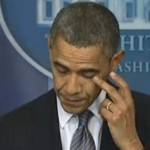 It’s been hard to avoid the terrible events in America that have seen so many killed at the hands of a crazed gunman. This tragic event joins a sadly growing list of such shootings, each seemingly more gruesome than the last.
It’s been hard to avoid the terrible events in America that have seen so many killed at the hands of a crazed gunman. This tragic event joins a sadly growing list of such shootings, each seemingly more gruesome than the last.
Alongside the widespread dismay at the massacre there has been calls by President Obama for serious measures to stop such events happening again. Whilst an obvious target for these measures might be tighter gun controls, one would hope an equally prominent target is the media and their response to the tragedy. Charlie Brooker summed things up better than I could in a 2009 edition of his Newswipe show, after a similarly gruesome shooting in Germany.
[youtube width=”500″ height=”300″]PezlFNTGWv4[/youtube]
What role does social media play?
Suffice to say that most of this clip was aimed at the television news media, but since 2009 social media is playing an ever more prominent role in our lives. Importantly it also provides a platform to grab your five minutes of fame like no other. It’s allowed people to post up their own footage of such events, and discuss the reasons behind such tragedies like never before.
In the clip Dr Park Dietz gives a chilling critique of the media and their role in these events. He recommends:
- not showing a photo of the killer
- not giving 24/7 coverage to the killing
- not making the body count headline news
- not turning the killer into an anti-hero
- do localise so that the news is there for those affected, but make it boring for everyone else
everytime we see saturation coverage of a mass murder we expect to see a couple more within a week
It seems that none of these tips have been taken on board, and we’ve had a number of massacres this year. Whilst each of us has limited scope to change things, and certainly can’t control what other people say on Twitter et al, it does raise the question of whether we should allow this topic to be discussed on our own communities (if we have them), and if so, should we abide by any of the tips raised above?
What are your thoughts?
Wish I could be more sympathetic to this viewpoint, which it seems is shared by many respected friends. But to my mind, what is the point in shooting the messenger? I don't believe the theory that media especially promotes the repetition of these real-life tragedies, though it's clear to me that our culture as a whole does not prevent them, does not breed trust or faith or compassion. The issues are guns and mental health, along with education and the demise of the family, religion, and economic opportunity. Media influence trails a long way after these primary concerns.
It's certainly an interesting topic Mary (if a rather sad and grim one). There has been some research into the role of the media into these things
http://hsx.sagepub.com/content/4/4/364.short is the main one, but it obviously doesn't cover social media coverage.
Talking about the event with various people from both sides of the pond, it seems unlikely that gun control will ever improve given its status in the constitution, so I guess we have to focus on other areas?
Very thoughtful post, Adi. I was not aware of this mass killing in Germany, yet another very sad incident. To add to your point, you may want to read Roger Ebert (movie critic) and his stance on this. It says it all, in my mind.
See here: http://www.i-am-bored.com/bored_link.cfm?link_id=…
Cheers,
Frederic
Thanks for that Frederic, I hadn't come across him before, but he makes a lot of sense. The challenge is what can be done about it? You 'might' be able to request that the media act more responsibly, but with social media it's much harder to control coverage, so these individuals can still gain a degree of fame or notoriety. I don't really know the answer.
Sadly, we are a reality TV obssessed country (if not world). The reason these topics get headlined is because they have readers. I have been thinking a lot about the topic of rubber necking… why we do it, what is so compelling. After Columbine I leanred to turn off the TV so that at least the images aren't there to haunt me. We, as readers and viewers, can choose where we give power.
The thing that worries me about social media is that there is so much misinformation posted. It seems rife with people telling lies online.
The thing is, I don't see any way of stopping it. Unless you control what the press pump out it seems difficult to do anything about it. As Levison showed, the press aren't going to police themselves, or indeed show any kind of ethical considerations.
I wonder if the Newtown coverage contributed to the firemen shooting in New York?
Social media can be powerful in a positive way, yet it can be very negative. The shooting is definitely one of the examples of people using social media in a wrong way